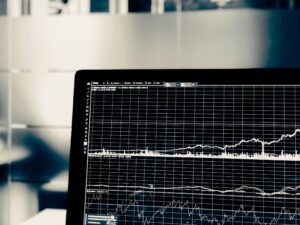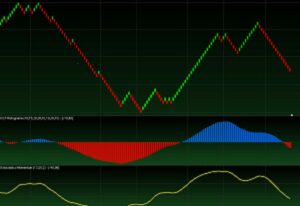
Trade-traded funds as soon as had been novelties. The primary U.S. ETF debuted in 1993; now there are greater than 2,800 to select from. Some buyers construct portfolios round ETFs. However with so many merchandise — and new funds consistently added — it’s robust to inform which of them advantage a more in-depth look.
Vetting an ETF is pretty easy. Let’s begin with charges. Like mutual funds, ETFs carry an expense ratio. Evaluating price amongst equally designed ETFs gives one measure of worth.
But the associated fee distinction between two ETFs that monitor the identical index or sector is usually comparatively slender. Actively managed ETFs are dearer, however nonetheless carry barely decrease charges than comparable mutual funds: Their weighted common annual bills of 0.44% of belongings is decrease than the common of 0.57% for lively mutual funds, based on funding researcher Morningstar.
“Prices have come down considerably in broad market or broad model ETFs,” mentioned Todd Rosenbluth, head of analysis at VettaFi, a New York Metropolis-based ETF knowledge and analytics agency.
When scrutinizing mutual funds, buyers typically prioritize previous efficiency. However with index-tracking ETFs, evaluating previous efficiency between two comparable ETFs gained’t get you far. Anticipate to see slight variations that gained’t supply a lot perception into which one is best.
A extra revealing metric is R-squared, says Matt Schwartz, an authorized monetary planner in Minneapolis. It measures correlation — or the extent to which an ETF’s efficiency correlates to its benchmark. If you’d like an ETF that completely tracks the S&P 500 SPX, +1.23%, for instance, verify that its R-squared is 100.
If the R-squared dips into the low- or mid 90s, that doesn’t imply the fund is unhealthy, Schwartz provides. It simply exhibits that you simply gained’t get actual replication to the index it tracks. In that case, you’ll wish to see the next “alpha” to point that the fund outperforms its benchmark by taking extra threat.
One other clue when assessing index-tracking ETFs pertains to their construction. Funds that maintain a basket of the identical shares can nonetheless range in delicate methods. Evaluation the fund’s prospectus to investigate its methodology, Rosenbluth says. Find out how the fund is constructed and the way it selects its holdings.
“It’s essential to grasp why a sure inventory is closely weighted in a portfolio, or why it’s not,” he mentioned. As an illustration, some ETFs weight shares by market cap; others go for equally weighting every holding.
Talking of holdings, you’ll wish to know which shares you’re shopping for. Look past the fund’s title to establish the equities contained inside. Totally clear ETFs disclose their complete portfolio every day. Semi-transparent ETFs present their holdings each quarter and are typically actively managed moderately than monitor an index.
“Search for full transparency ETFs,” mentioned Christopher Day, a Houston-based funding adviser. “As a result of you possibly can examine the holdings day by day, you can begin to see if the ETF is straying from its essential mandate. With full transparency, you’re extra apt to get the funding publicity that you simply had been promised within the prospectus.”
Earlier than shopping for any fund, take a look at the corporate that runs it (often known as the fund sponsor). The agency that creates and markets an ETF ought to have related background and experience within the fund’s funding technique. Evaluation the fund’s audited monitor report to get a way of its longevity and stability in addition to its previous efficiency.
Ideally, you’ll wish to select an ETF that has been round not less than a couple of years. Newly issued funds lack a monitor report and to allow them to be tougher to evaluate.
Additionally, watch out for funds which have just lately modified their title, Rosenbluth warns. They could have stumbled of their earlier iteration and, of their try to rebrand themselves, could undertake a special funding method.
Extra: Most shares find yourself dropping you cash. So what’s a stock-market investor to do?
Additionally learn: When Russia was NVIDIA — why you shouldn’t chase the stock-market darlings




